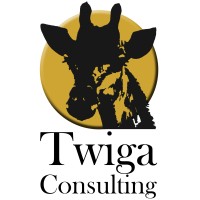Flexible Business Solutions: Future-proofing Companies in Uncertain Times
In today’s unpredictable business environment, South African companies are facing multiple headwinds: slow economic growth, volatile commodity and export markets, regulatory and labour‑law changes, digital disruption, and shifting workforce expectations. For companies that rely on fixed traditional operational models, these forces can rapidly erode resilience. Flexible business solutions—such as outsourced HR and payroll, agile project‑management models, and cloud‑based platforms—enable organisations to scale, pivot, remain compliant, and stay competitive. By adopting this flexibility, companies can not only weather uncertainty but turn it into a strategic advantage.
Agility in Operations
Flexible business solutions allow organisations to ramp operations up or down as demand fluctuates—critical in 2024–2025 especially for sectors affected by changing consumer behaviour, supply‑chain disruption, and workforce dynamics.
By building operations that can flex—through outsourcing non‑core services, using cloud-based platforms, or leveraging contingent talent—companies reduce the “stickiness” cost of traditional models and can respond more quickly to disruptions, whether economic, regulatory, environmental, or technological.
Cost Control Without Sacrificing Quality
Flexible business models offer a smarter way to manage costs. Outsourcing functions such as payroll, HR compliance, recruitment, or talent sourcing allows companies to access specialist expertise when needed, pay for what they use, and mitigate under‑utilisation in leaner periods.
These models help businesses maintain high-quality outcomes while reducing overhead and fixed costs, keeping organisations lean and efficient without compromising capability.
Compliance Confidence
South Africa presents a complex regulatory and labour‑law environment: Employment Equity, B‑BBEE obligations, POPIA, and labour‑law jurisprudence all require careful adherence. Flexible solutions provide access to specialist compliance expertise, ensuring organisations stay up-to-date with evolving regulations and reducing the risk of penalties or reputational damage.
Technology-Enabled Flexibility
Cloud-based systems, AI-powered recruitment tools, digital analytics, and automation enable companies to streamline operations and make data-driven decisions. These technologies provide actionable insight, operational efficiency, and lower fixed infrastructure costs.
By adopting technology-driven solutions, companies can pivot more quickly, adapt workforce models, and maintain operational continuity in uncertain conditions.
Focus on Core Business
Outsourcing non-core functions and leveraging technology frees leadership teams to focus on strategy, innovation, client engagement, and growth. Rather than reacting to administrative burdens, organisations become leaner, sharper, and better prepared to seize opportunities.
Future-proofing in 2025 is about building an organisation that is agile, cost-efficient, compliant, technologically enabled, and focused on core strengths. Flexible business solutions are no longer optional—they are essential for South African companies that want to remain resilient, competitive, and positioned for sustainable growth. Twiga Consulting partners with clients to deliver practical, flexible services that align with both immediate needs and long-term strategy, helping businesses turn uncertainty into opportunity.
The insights shared in this article are based on recent industry reports and expert analyses from,PwC, South Africa Economic Outlook 2025, Strategy& / PwC, Key risks: energy disruptions, water shortages and extreme weather, Deloitte, Future of Work / Workforce Insights, Deloitte, Tech Trends 2025 / Tech Trends Africa, Deloitte, 2025 Global Business Services Survey (Outsourcing / Shared Services), Mercer, Global Talent Trends 2024-2025, BusinessTech, SME Report 2024, KPMG, Trends in Outsourcing 2025

